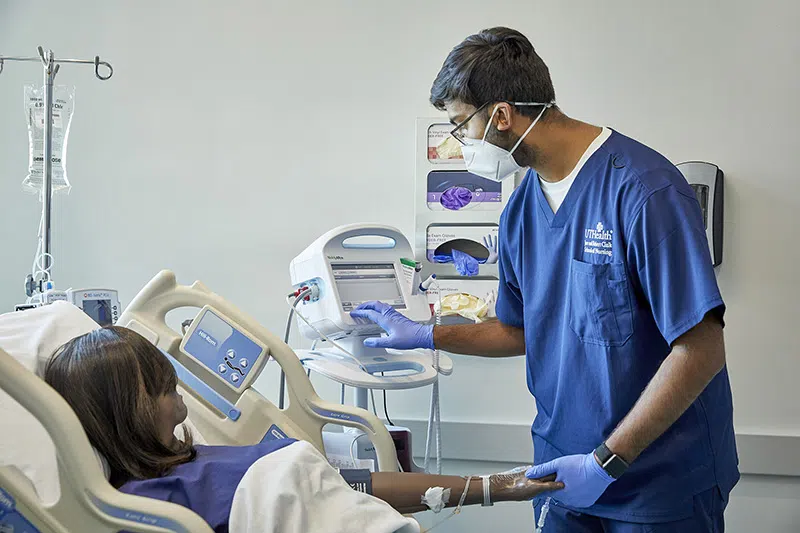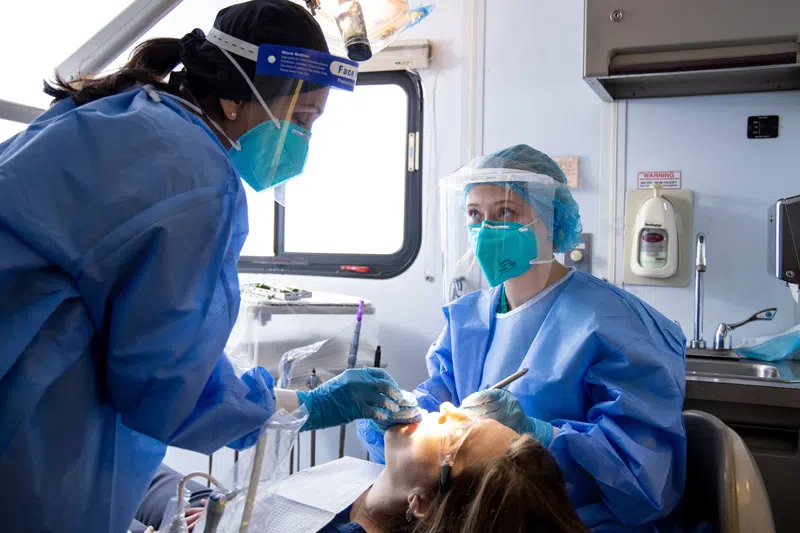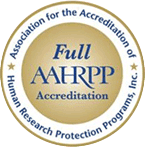POLICY
The IRB may approve research with exceptions to the requirement of informed consent, if the IRB (with the concurrence of a licensed physician who is a member of or consultant to the IRB and who is not otherwise participating in the clinical investigation) determines and documents each of the following:
- The human subjects are in a life-threatening situation, available treatments are unproven or unsatisfactory, and the collection of valid scientific evidence, which may include evidence obtained through randomized placebo-controlled investigations, is necessary to determine the safety and effectiveness of particular interventions.
- Participation in the research holds out the prospect of direct benefit to the subjects because:
- Subjects are facing a life-threatening situation that necessitates intervention;
- Appropriate animal and other preclinical studies have been conducted, and the information derived from those studies and related evidence support the potential for the intervention to provide a direct benefit to the individual subjects; and
- Risks associated with the investigation are reasonable in relation to what is known about the medical condition of the potential class of subjects, the risks and benefits of standard therapy, if any, and what is known about the risks and benefits of the proposed intervention or activity.
- Obtaining consent is not feasible because:
- The participants will not be able to give consent as a result of their medical condition.
- The intervention under investigation must be administered before consent from the participants’ legally authorized representatives is feasible.
- There is no reasonable way to identify prospectively the individuals likely to become eligible for participation in the clinical investigation.
- The clinical investigation could not practicably be carried out without the exception to the informed consent requirements.
- An independent data monitoring committee will exercise oversight of the clinical investigation.
For research not subject to FDA regulations, the IRB will find and document that the research was not subject to regulations codified by the FDA at 21 CFR 50 and that the criteria were applied in accordance with DHHS criteria.
Exception from informed consent is explicitly excluded when the research involves protected populations including pregnant women, fetuses or prisoners.
For research funded by Department of Defense, an exception from informed consent is in emergency medicine research is prohibited, unless the Secretary of Defense approves a waiver of the advance informed consent provision of 10 USC 980. (see policy on Department of Defense).
Key Terms:
Family member: For purposes of this policy, family member means any one of the following legally competent persons: spouses; parents; children (including adopted children); brothers, sisters, and spouses of brothers and sisters; and any individual related by blood or affinity whose close association with the participant is the equivalent of a family relationship.
PROCEDURE
Submission: The investigator should provide an informed consent document and procedure for obtaining informed consent from the subject or legally authorized representative consistent with policy and procedure on Informed Consent.
The research proposal should include scientific evidence for length of the potential therapeutic window; and then provide a plan to contact a legally authorized representative for each subject within that window of time.
The investigator should provide a community consultation plan that includes:
- Consultation with representatives of the communities in which the research study will be conducted and from which the subjects will be drawn;
- Public disclosure to the communities in which the research study will be conducted and from which the subjects will be drawn, prior to initiation of the research study, of plans for the investigation and its risks and expected benefits; and
- Public disclosure of sufficient information following completion of the research study to apprise the community and researchers of the study, including the demographic characteristics of the research population, and its results.
Informed Consent: For each participant enrolled in the study, the investigator should ask the legally authorized representative for consent within that window rather than proceeding without consent.
When the Investigator is unable to locate a legally authorized representative prior to enrolling a subject, the Investigator will attempt to contact, within the therapeutic window, a family member to ask whether he or she objects to the individual’s participation. A summary of efforts to contact the legally authorized representative and family members should be made available to the IRB at the time of continuing review.
When a participant is enrolled without consent, the investigator should have procedures in place to inform, at the earliest opportunity, each subject or legally authorized representative, or if such a representative was not reasonably available, a family member:
- Of the participant’s inclusion in a research study, the details of the research and other information contained in the consent document.
- That he or she might discontinue the subject’s participation at any time without penalty or loss of benefits to which the subject was otherwise entitled.
If a legally authorized representative or a family member is told about the clinical research and the participant’s condition improves, the participant is also to be informed as soon as feasible.
If a participant is entered in a research study without consent and the participant dies before a legally authorized representative can be contacted, information about participation in the research study should still be provided to the legally authorized representative, if feasible.
IRB Review: IRB staff will schedule research proposals requesting for emergency exception from informed consent requirements for review at a full board meeting. IRB staff in collaboration with research compliance specialist will verify whether the research needs an investigational new drug (IND) or investigational device exemption (IDE). When an IND or IDE is needed, a protocol involving exception from informed consent requirements must be submitted to the FDA in a separate IND/IDE even if an IND/IDE for the same drug or device already exists.
A convened IRB must determine and document that obtaining informed consent is not feasible because:
- The subjects will not be able to give their informed consent as a result of their medical condition;
- The intervention under investigation must be administered before consent from the subjects' legally authorized representatives is feasible; and
- There is no reasonable way to identify prospectively the individuals likely to become eligible for participation in the clinical investigation.
In addition to the criteria for approval in policy and procedure on initial review, the IRB will review and approve the community consultation plan provided by the investigator. Following completion of the consultation as per the proposed plan, based on the response from these consultations, the IRB will make a determination whether the study can be approved or if additional consultations are needed.
If the IRB determines that it cannot approve a research study because it does not meet the criteria for exception from informed consent requirements for emergency research or because of other relevant ethical concerns, the IRB shall provide these findings promptly in writing to the investigator. The IRB will require the investigator to notify the sponsor to disclose this information to:
- FDA
- Other investigators who are participating or are asked to participate in this or a substantially equivalent clinical investigation of the sponsor,
- Other IRBs that have been, or are, asked to review this or a substantially equivalent investigation by that sponsor.
When research is not subject to FDA regulations, but follows DHHS regulations, the IRB finds, documents, and reports to DHHS that the conditions of this policy have been met relative to the research. When research is not subject to FDA or DHHS regulations, this policy will still be followed.
The IRB will instruct investigators to provide the sponsor with a copy of the information that has been publicly disclosed if they haven’t already done so.
If another IRB reviewing this or a substantially equivalent investigation by the sponsor determines that it cannot approve a clinical investigation because the investigation does not meet the criteria for exception from informed consent requirements for emergency research or because of other ethical concerns, the sponsor must notify the UTHealth IRB.
APPLICABLE REGULATIONS
- 45 CFR 46 Protection of Human Subjects
- 21 CFR 50 Protection of Human Subjects
- OHRP Letter - Waiver of Informed Consent Requirements in Certain Emergency Research
- FDA Guidance - Exception from Informed Consent Requirements for Emergency Research
REFERENCES TO OTHER SOP
- Initial Review
- Informed Consent
ATTACHMENTS
- IRB Initial Application Emergency Exception Panel
If you find errors in this document, contact clinicaltrials@uth.tmc.edu
|
Document Number:
|
101-C06
|
|
Document Name:
|
Exemption from Informed Consent Requirements for Emergency Research
|
|
Reviewed by:
|
Executive Director, Research Compliance
|
|
Effective:
|
1 Aug 2008
|
|
Revision History:
|
1 Aug 2011, 1 June 2016, 21 Jan 2019, 19 June 2019, 1 Jun 2021
|
CPHS HELPLINE 713-500-7943
iRIS HELPLINE 713-500-7960
UTHealth Houston Compliance Hotline: 800-846-0632 (for English and Spanish speaking)
IRB OFFICE HOURS Thursdays from 1 to 4pm, via this Teams Room
How can we improve this site?











